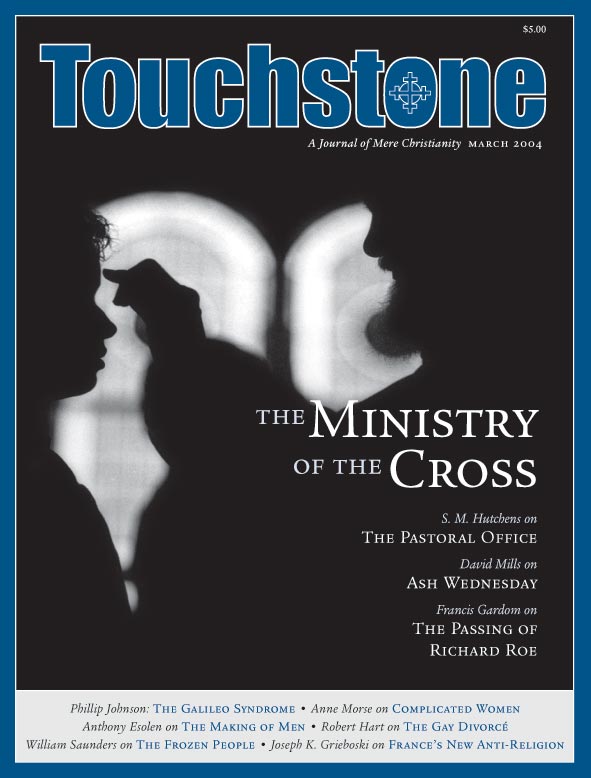The Galileo Syndrome
The trial of Galileo is known to the public almost entirely as a one-dimensional morality play, in which freedom of thought, embodied in science, is persecuted by dogmatic oppression, embodied in the Catholic Church. Recent retellings of the story, such as Wade Rowland’s Galileo’s Mistake, challenge modernist prejudice by portraying a more complex tangle in which the over-bearing Galileo bears part of the responsibility for forcing a showdown with Pope Leo VIII, who had been Galileo’s friend and supporter until the great scientist’s contempt for authority exhausted his patience.
The Church did not object to the Copernican theory, provided that Galileo advanced it only as a useful hypothesis and not as the literal truth. Perhaps astronomers were finding the hypothesis of Copernicus preferable to the geocentric tradition for such scientific tasks as navigation and the prediction of eclipses. The Church was willing to leave such scientific questions to the scientists, while recognizing that scientific convenience is not the only guide to truth.
It was otherwise when Galileo, writing for the public in Italian rather than solely for the scholars in Latin, employed his immense prestige and rhetorical skill to teach that a rotating and revolving earth was not merely a fiction adopted for its convenience in scientific work, but was truly the way things really are, regardless of what the Church thought about the matter. By crossing that line, Galileo directly challenged the Church’s authority during a critical phase of the Counter-Reformation, and the Church understandably had objections, both scientific and theological.
THIS ARTICLE ONLY AVAILABLE TO SUBSCRIBERS.
FOR QUICK ACCESS:
Phillip E. Johnson is Professor of Law (emeritus) at the University of California at Berkeley. He is the author of Darwin on Trial, The Wedge of Truth, The Right Questions (InterVarsity Press), and other books challenging the naturalistic assumptions that dominate modern culture. He is a contributing editor of Touchstone.
subscription options
Order
Print/Online Subscription

Get six issues (one year) of Touchstone PLUS full online access including pdf downloads for only $39.95. That's only $3.34 per month!
Order
Online Only
Subscription

Get a one-year full-access subscription to the Touchstone online archives for only $19.95. That's only $1.66 per month!
bulk subscriptions
Order Touchstone subscriptions in bulk and save $10 per sub! Each subscription includes 6 issues of Touchstone plus full online access to touchstonemag.com—including archives, videos, and pdf downloads of recent issues for only $29.95 each! Great for churches or study groups.
Transactions will be processed on a secure server.
more from the online archives
calling all readers
Please Donate
"There are magazines worth reading but few worth saving . . . Touchstone is just such a magazine."
—Alice von Hildebrand
"Here we do not concede one square millimeter of territory to falsehood, folly, contemporary sentimentality, or fashion. We speak the truth, and let God be our judge. . . . Touchstone is the one committedly Christian conservative journal."
—Anthony Esolen, Touchstone senior editor










